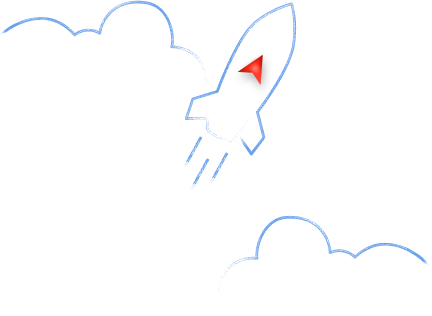Unlock
Your Competitive Edge
With Our Innovation Alchemy
Unlock Your
Competitive Edge
With Our
Innovation Alchemy
WHAT WE DO
Human -
Technology Interaction
Designing for behaviour, not just usability.
We shape digital experiences that
influence action, build habits, and
deepen engagement.
Artificial
Intelligence
Embedding intelligence
where it matters most.
We infuse products with AI to
personalise, predict, and automate —
making them smarter and more adaptive.
Design
Thinking
Solving the right problems, the right way.
By anchoring in real user needs,
we uncover insights that guide purposeful,
high-impact innovation.
Product
Engineering
Engineering for faster, smarter delivery.
We use AI to accelerate development,
cut costs, and bring scalable products to
market with precision.

OUR OFFERINGS
Digital Experience
Platforms (DXP) & Product Design
Creating intuitive, engaging, and scalable digital
experiences that drive user loyalty and business
growth. We blend UX strategy, design thinking, and
HTI-driven design to craft platforms
that resonate deeply with users.
Creating intuitive, engaging, and scalable digitalexperiences that drive user loyalty and businessgrowth. We blend UX strategy, design thinking,and HTI-driven design to craft platformsthat resonate deeply with users.
AI & Data-Led
Transformation
Unlock intelligence across your business with AI-
driven insights, automation, and personalization.
We help you embed smart capabilities where they
matter most - turning data into action and
strategy into tangible outcomes.
Unlock intelligence across your business withAI-driven insights, automation, andpersonalization. We help you embed smartcapabilities where they matter most – turningdata into action andstrategy into tangible outcomes.
Digital Core &
Platform Engineering
Architecting robust, future-ready digital platforms
with speed, precision, and scalability. From APIs to
microservices and cloud-native development,
we build the digital backbone that powers
innovation and agility.
Architecting robust, future-ready digitalplatforms with speed, precision, and scalability.From APIs to microservices and cloud-nativedevelopment, we build the digital backbonethat powers innovation and agility.
Enterprise
Modernization
Reimagine legacy systems for a digital-first world. We
modernize enterprise tech stacks with cloud, AI, and
experience-led transformation –
helping you evolve faster and compete stronger.
Reimagine legacy systems for a digital-firstworld. We modernize enterprise tech stackswith cloud, AI, and experience-ledtransformation – helping you evolve faster andcompete stronger.


OUTCOMES WE DRIVE
Speed to Value
Faster time-to-market and product iterations;
quicker transformation and
early user adoption
Smart Automation & Intelligence
Feature differentiation,
proactive decision-making, reduced human error
Product-Led Growth
Higher engagement and retention;
better solution adoption,
roadmap clarity, and ROI
Minimized Risk
Lower failure rates,
improved governance,
stronger customer trust
Operational Efficiency
Lower support costs,
increased productivity,
cost savings
Continuous Innovation
Faster product evolution,
easier upgrades,
long-term transformation






Transworld Avana
Primary Requirement
Streamline complex, multi-day container bookings into a seamless, digital-first self-serve experience.
Signature move
Drag. Drop. Ship . We replaced manual bookings with a smart, visual system powered by real-time data, making shipments as easy as a few clicks.
Supporting Insight
Avana turned logistics into a real-time visual experience. Users could plan, book, and track shipments faster than ever—reducing errors, delays, and admin load across the board.
Impact
From shipping chaos to zero-click logistics. What took 2 days now takes 2 minutes.
55,000+
shipments processed with zero friction
2,000+
customers onboarded digitally
Outcomes
99% faster bookings, fewer support calls, and a scalable platform that powered Transworld's acquisition by DP World.
